Here at Uprise Solar, we’re passionate about making clean energy accessible to everyone. In this post, we’ll tackle common solar questions and concerns head-on, providing clear answers and practical information to help you decide if solar is right for your DC home. We’ll cover everything from the installation process to the financial benefits so you can feel confident as you begin your solar journey.
This guide will give you a solid foundation, and at the end you’ll find links to more in-depth articles where we dive deeper into the fundamentals of solar. Let’s start your solar journey together!
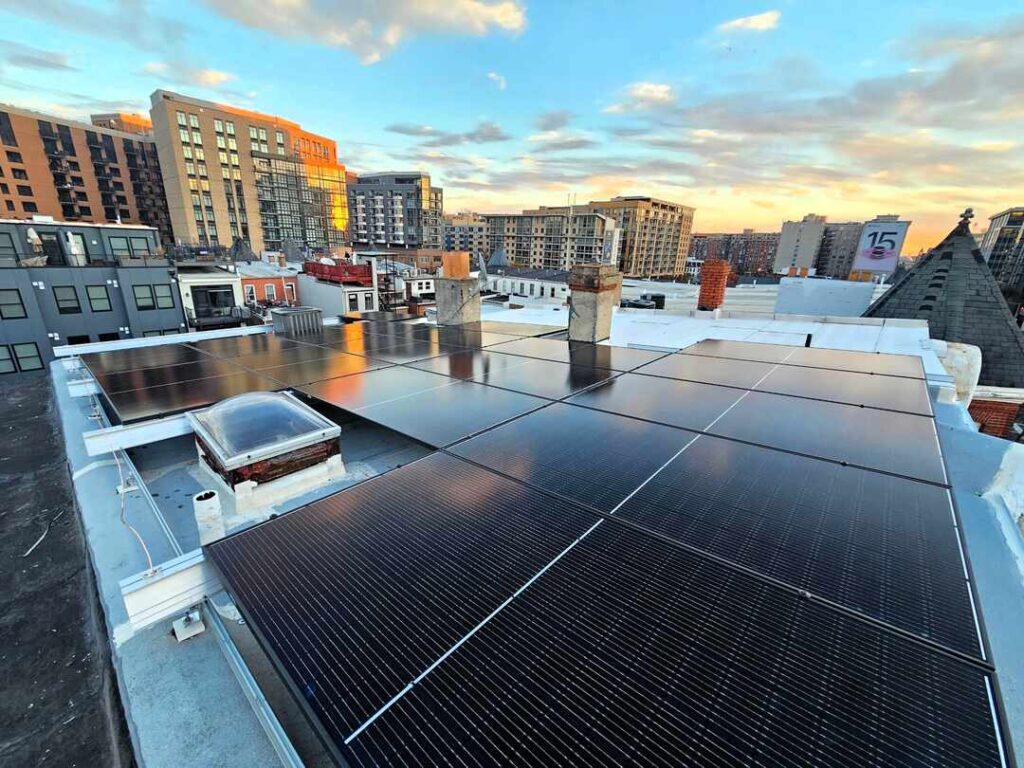
Financial Questions
- How much does it cost to go solar in DC? The cost varies depending on system size, roof type, and chosen equipment. However, with tax credits, rebates, and financing options, solar is more affordable than ever. A typical return on investment is three to five years if the house has good sun exposure. 12 to 15% ROI.
- 30% Federal Tax Credit: Homeowners can claim a 30% federal tax credit on the total cost of their solar system, which includes equipment, permitting fees, and installation costs. This credit directly reduces the amount of income tax owed, making solar installations more affordable.
- Will solar panels increase my home’s value? Yes! Studies consistently show that solar panels increase home value, often more than kitchen renovations.
- Will my property taxes increase because of solar? No. In Washington, DC, solar energy systems are exempt from property taxes, ensuring your home’s value won’t increase simply because you’ve gone solar.
- What are the different ways to pay for solar panels? You can purchase your system outright, take out a loan, or opt for a no-cost system through our Power Purchase Agreement (PPA). Uprise can help you explore the best option for your needs.
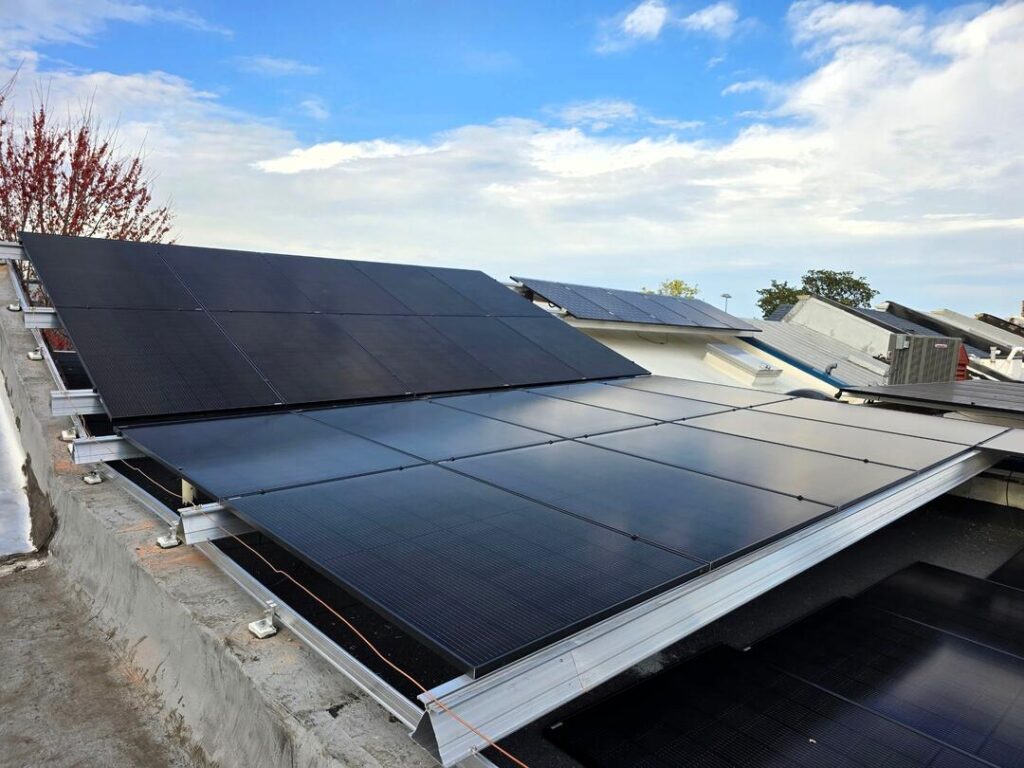
Technical Questions
- How do solar panels work? Solar panels, also known as photovoltaic or PV panels, are made up of many solar cells. These silicon cells convert sunlight into direct current (DC) electricity. Since homes and businesses use alternating current (AC) electricity, an inverter transforms the DC electricity into usable AC electricity. This AC power can then be used to power your home. Any excess energy is sent back to the electric grid, earning you credits on your bill!
- How long do solar panels last? Solar panels are built to be incredibly durable and withstand the elements. The panels Uprise recommends come with a 30-year warranty, but can last 35-40 years or more, producing clean energy for your home throughout their lifespan.
- Do solar panels work on cloudy days? Yes, they still produce electricity, although less than on sunny days. DC’s solar potential is still strong, even with some cloud cover.
- Do I need a battery to go solar? Since power outages are rare in Washington, DC, most homeowners don’t need a battery to enjoy the benefits of solar. Connecting your panels to the grid is usually sufficient, so you can sell excess energy and draw from the grid when needed. However, if having backup power or maximizing self-sufficiency is a priority, you might want to consider a battery. Uprise can help you assess your individual needs and budget.
- Will my solar panels work during a power outage? No. You’ll need a battery backup system if you want to keep the lights on during outages. Since we rarely lose power for extended periods here in the DC metro area, we do not recommend installing a battery system with most solar arrays.
- How will I know my solar panels are working properly? With a user-friendly monitoring system, you can track your solar production in real-time, see how much energy you generate, and watch your savings grow. You’ll also have peace of mind knowing you can easily spot and address any potential issues.
- What kind of maintenance do solar panels need? Very little! An occasional cleaning and check-up every few years are usually all that’s needed.
- If solar panels are becoming more efficient, should I wait to install them? While solar panels have become more efficient over time, the rate of improvement has slowed considerably. The focus in the solar and tech industry has shifted to advancements in battery technology. So now a great time to invest in solar and benefit from current incentives and savings.
- EVs and Solar: Adding an electric vehicle to your home does not directly impact your solar panels’ production. However, it will increase your overall electricity consumption, so you may want to expand your solar system if possible or prioritize energy efficiency upgrades to meet higher energy needs.
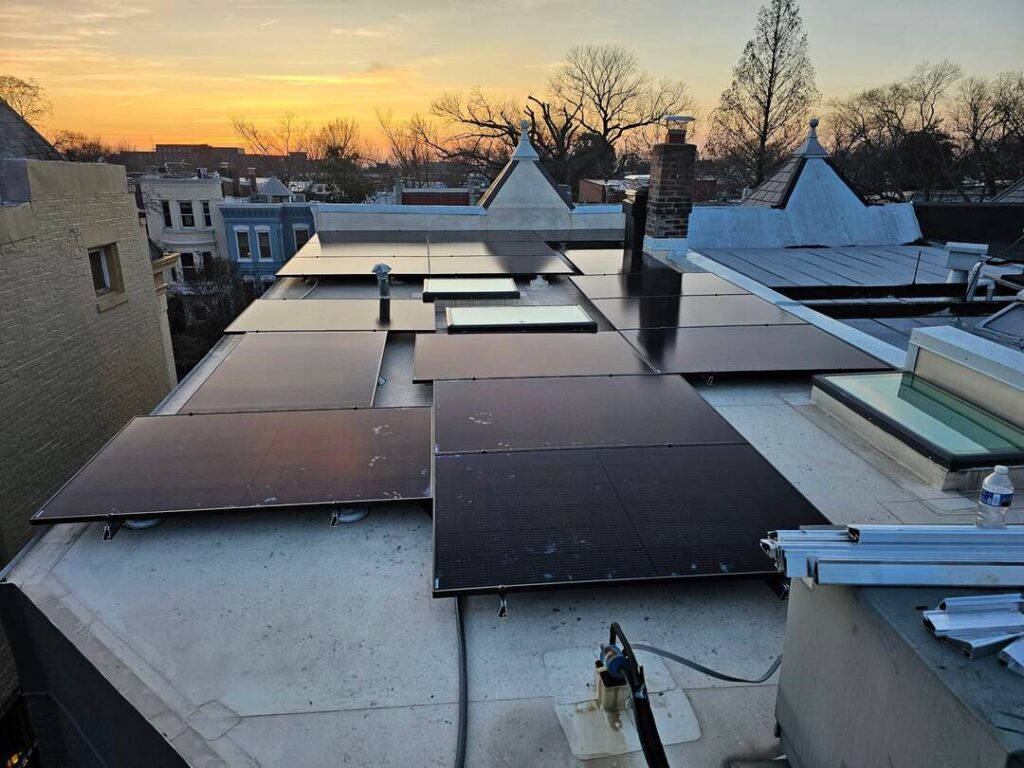
Practical Questions
- Is my roof suitable for solar energy? South-facing roofs are ideal. But solar can often be installed on other roof types as long as they have good sun exposure. Uprise can assess your property to determine what’s possible.
- Do I need to replace my roof before installing solar? If your roof is near the end of its lifespan, it’s wise to replace it before installing solar to avoid extra costs down the line. Uprise is a roofing and solar company, and our experienced roofer TJ Bobbitt can assess your roof and offer repair or reroof services.
- What happens when I need to replace or reseal my roof? Uprise offers a one-time removal and reinstallation of your solar panels if you need a new roof at any time within the first 20 years.
- What if I move? Your solar system can be transferred to the new owner. All you need to do is call us and let us know! All warranties will remain and will transfer to the new owner.
- Low-cost PPAs sound too good to be true; how can you offer that option? While low-cost PPAs for solar may indeed be too good to be true in other parts of the country, DC’s progressive solar policies and incentives have created a market where these affordable options are a reality for homeowners.
- How do I choose the right solar installer? Look for certified, licensed, and insured installers with experience in the District. Uprise operates with our dedicated, fully in-house team to ensure quality installations.
Environmental Questions
- How does solar help the planet?
- Significant carbon footprint reduction: Solar energy production significantly reduces carbon emissions compared to traditional fossil fuel-based power production. This mitigates the negative effects of climate change.
- Lowers greenhouse gas emissions: Less pollution means cleaner air and water for our city.
- Conserves water: Solar energy doesn’t require water for electricity generation, unlike traditional power plants.
- Preserves natural resources: Solar relies on the sun, an abundant and free resource.
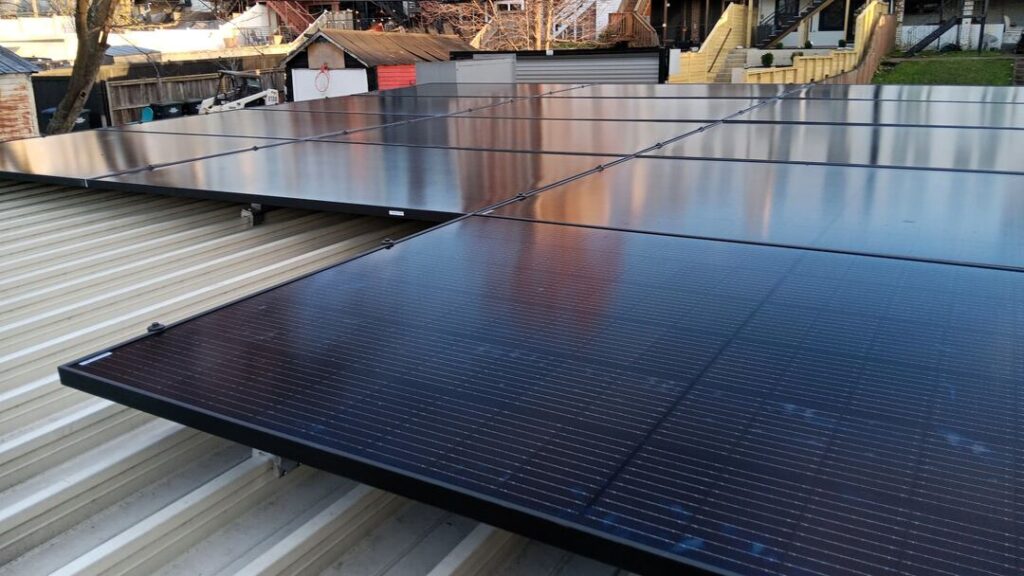
DC Incentives Questions
- What are SRECs? SRECs, or Solar Renewable Energy Credits, are certificates proving your solar panels generated a specific amount of electricity (1 SREC = one megawatt-hour of power). They monetize the environmental benefits of your solar energy system.
- Why are SRECs valuable? They’re valuable because of government mandates. Washington, DC, like many states, has renewable energy targets. Utilities and electricity suppliers need to buy SRECs to prove they are meeting these goals. This creates market demand, allowing you to sell your SRECs and make money.
- How do I earn SRECs? Your system’s monitoring system tracks your production, noting every time your system generates one megawatt-hour. Anyone who owns a solar system registered with DC’s Department of Energy & Environment is eligible to earn SRECs.
- How do I sell SRECs? Uprise will set you up with SolSystems, a local SREC broker who will navigate the SREC market and find buyers for you. Each time your system generates an SREC, SolSystems will deposit the trade into your bank account.
- How much are SRECs worth? The value of SRECs fluctuates based on supply and demand. In DC, the price is typically higher than other states due to strong demand incentivized by law.
- How long are SRECs valid? In DC, SRECs have a three-year lifespan from the date they’re generated.
- How do SRECs affect my solar savings? SRECs provide an additional revenue stream on top of your energy bill savings, increasing your overall return on investment.
- Do I have to sell my SRECs? No, it’s optional. You can keep your SRECs if you want to claim the environmental benefits for yourself.
- What happens if I went solar with a PPA? Uprise owns the SRECs, while you receive utility bill savings. SRECs are one way we’re able to make our PPA happen.
Important note: SREC markets are complex, and the rules vary by state. Uprise can help you understand the specific regulations and opportunities in DC and assist you in maximizing your SREC income.
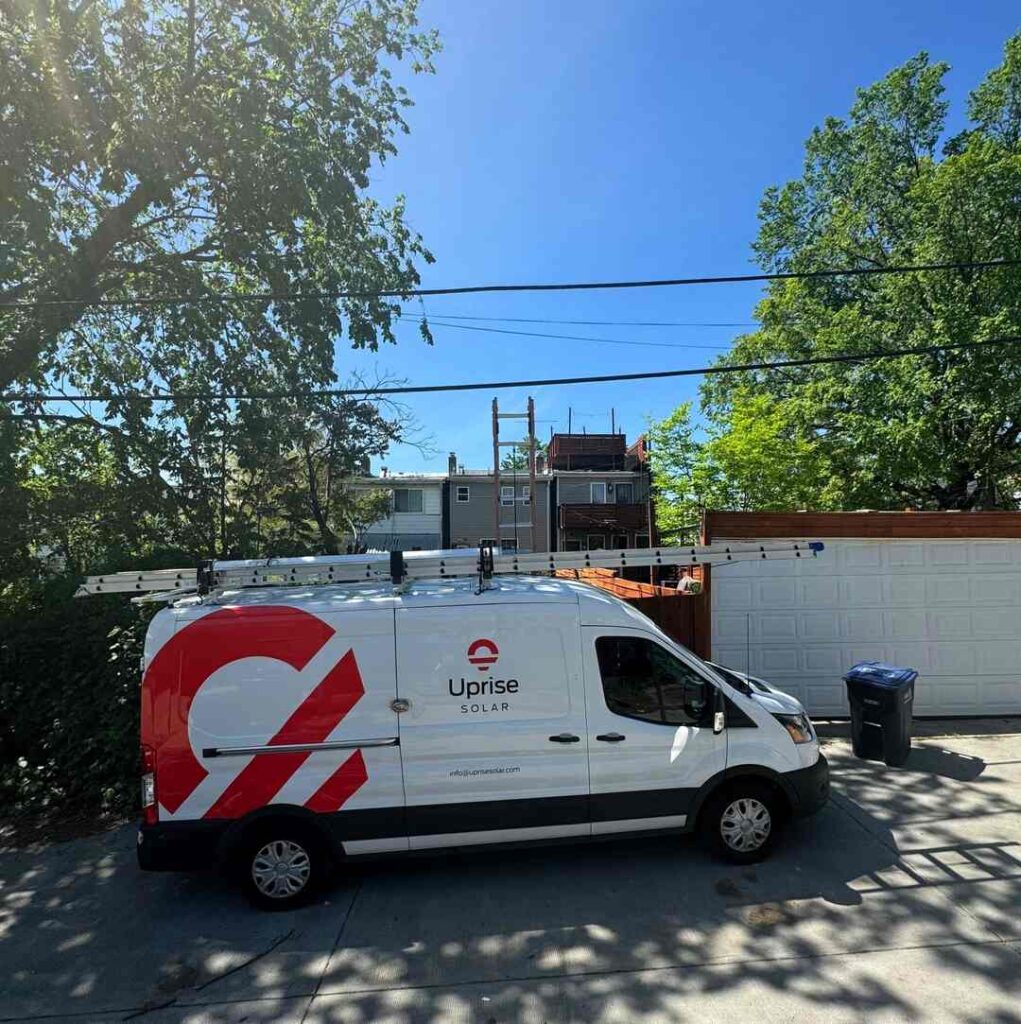
Let’s go solar, DC!
Ready to learn more? Check out more in-depth blog posts we’ve written answering other solar questions:
- Are Solar Panels Harmful to Your Health?
- Why Solar Companies Want Your Electric Bill
- If I Install Solar Panels, Do I Need To Worry About Lightning?
- It’s Here! What To Expect On Your Solar Installation Day
If you have another question we haven’t covered in this post, we’re here for you! Get in touch by calling (202) 280-2285 or reach out online.
